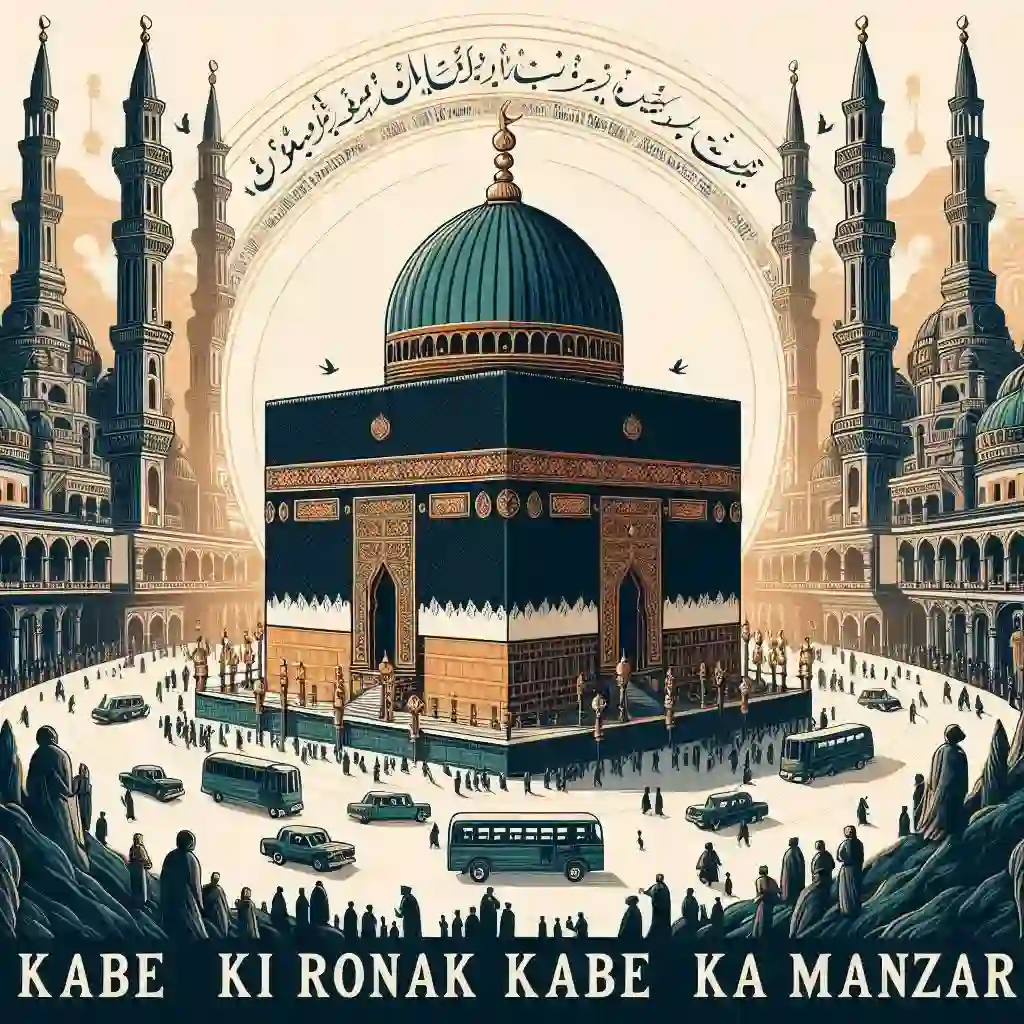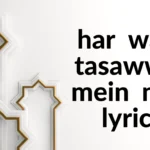The soulful lyrics of Kabe Ki Ronak, Kabe Ka Manzar immerse listeners in a deeply spiritual experience, capturing the profound awe and reverence one feels at the sight of the Holy Kaaba. Each verse is a vivid portrayal of faith, gratitude, and devotion.
The song serves as a reminder of the spiritual connection every Muslim feels toward the Kaaba, offering themes of humility, divine mercy, and eternal hope.
| Faslon Ko Takalluf Hai Humse Agar lyrics |
| Mola Ya Sali Wa Salim Naat Lyrics |
| Naat Aye Sabz Gumbad Wale Lyrics in Urdu |
| Unka Mangta Hoon Naat Lyrics in Urdu |
1. Kabe Ki Ronak, Kabe Ka Manzar
Allahu Akbar Allahu Akbar
Dekhu to dekhe jau barabar
Allahu Akbar Allahu Akbar
The opening lines beautifully set the tone of the lyrics. The poet marvels at the magnificence of the Kaaba, unable to take his eyes away from its splendor. The repetition of “Allahu Akbar” (Allah is the Greatest) enhances the divine atmosphere.
2. Hainrat Se Khud Ko Kabhi Dekhta Hu
Aur Dekhta Hu Kabhi Mai Haram Ko
Laya Kahan Mujhko Mera Muqaddar
Allahu Akbar Allahu Akbar
This verse reflects introspection and gratitude. The poet marvels at his destiny, which brought him to the sacred Haram. Alternating between self-reflection and gazing at the Haram, he expresses immense gratitude to Allah for this opportunity.
3. Hamd-e-Khuda Se Tar Hain Zabane
Kano Me Rass Ghoolti Hain Azane
Bus Ek Sada A Rahi Hain Barabar
Allahu Akbar Allahu Akbar
In this verse, the poet describes how his tongue is moist with the praises of Allah, and the sweet sound of the Adhan fills his ears. It showcases the harmonious environment of spirituality surrounding the Kaaba.
4. Mangi Hain Maine Jitni Duae
Manzoor Hongi Maqbool Hongi
Mizab-e-Rehmat Hain Mere Sar Par
Allahu Akbar Allahu Akbar
Here, the poet expresses faith in the acceptance of his prayers, as he stands under the Mizab-e-Rehmat (the golden spout of mercy). This line signifies Allah’s boundless mercy and the hopeful heart of a believer.
5. Tere Karam Ki Kya Baat Maula
Tere Haram Ki Kya Baat Maula
Ta Umr Karde Ana Muqaddar
Allahu Akbar Allahu Akbar
The poet’s gratitude intensifies as he marvels at Allah’s blessings and the sanctity of the Haram. He prays for a lifetime of opportunities to visit this sacred place, showing the eternal longing of a believer.
6. Yad Agayi Jab Apni Khataye
Ashko Me Dhalne Lagi Iltijae
Roya Gilaf-e-Kaba Pakad Kar
Allahu Akbar Allahu Akbar
This heart-touching verse describes a moment of repentance. Holding onto the Gilaf-e-Kaaba, the poet’s tears become prayers of forgiveness. It highlights the human connection to Allah through repentance.
7. Dekha Safa Bhi Marwa Bhi Dekha
Rab Ke Karam Ka Jalwa Bhi Dekha
Dekha Rawa Ek Saron Ka Samandar
Allahu Akbar Allahu Akbar
This verse recalls the pilgrimage rituals of Safa and Marwa, symbolizing the unwavering faith of Hajar (AS). The poet also witnesses the unity of pilgrims, describing it as an ocean of devotion.
8. Kabe Ke Upar Se Jate Nahi Hain
Kisko Sabak Yeh Sikhate Nahi Hain
Kitne Moadab Hain Yeh Kabutar
Allahu Akbar Allahu Akbar
The poet draws attention to the symbolic humility of the pigeons around the Kaaba. Their behavior teaches a lesson in reverence and respect, adding to the sacredness of the site.
9. Bheja Hain Jannat Se Tujhko Khuda Ne
Chuma Hain Tujhko Khud Mere Mustafa Ne
Aye Hajr-e-Aswad Tera Muqaddar
Allahu Akbar Allahu Akbar
This verse glorifies the Hajr-e-Aswad (Black Stone), emphasizing its celestial origin and its honor of being kissed by the Prophet Muhammad ﷺ. It’s a powerful symbol of connection between the heavens and the Earth.
10. Jis Par Nabi Ke Kadam Ko Sajaya
Apni Nishani Keh Ke Bataya
Mehfooz Rakha Rab Ne Yeh Patthar
Allahu Akbar Allahu Akbar
The poet pays homage to the Maqam-e-Ibrahim, where the Prophet Ibrahim (AS) stood while constructing the Kaaba. This stone, preserved by Allah, represents faith, perseverance, and divine protection.
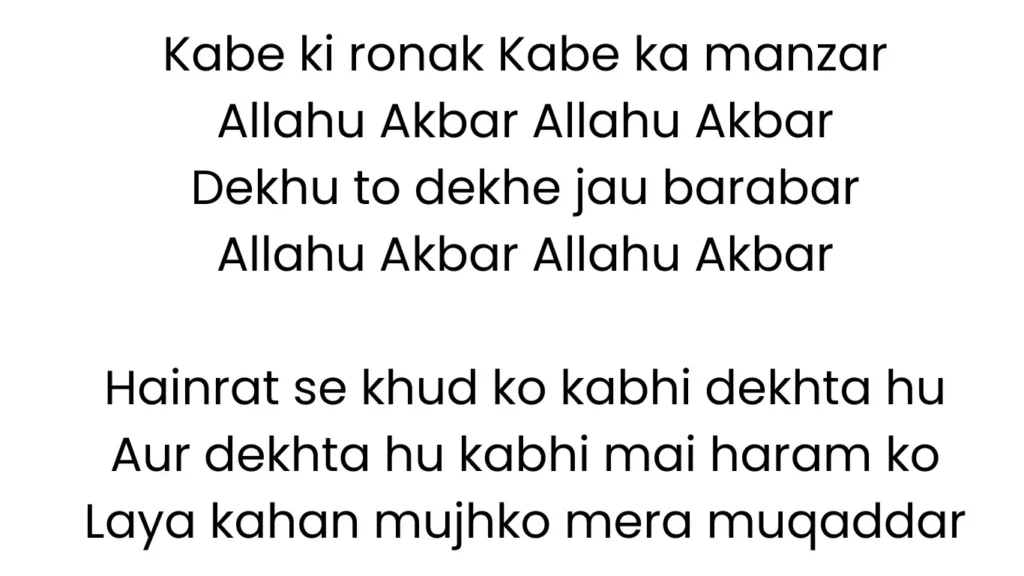
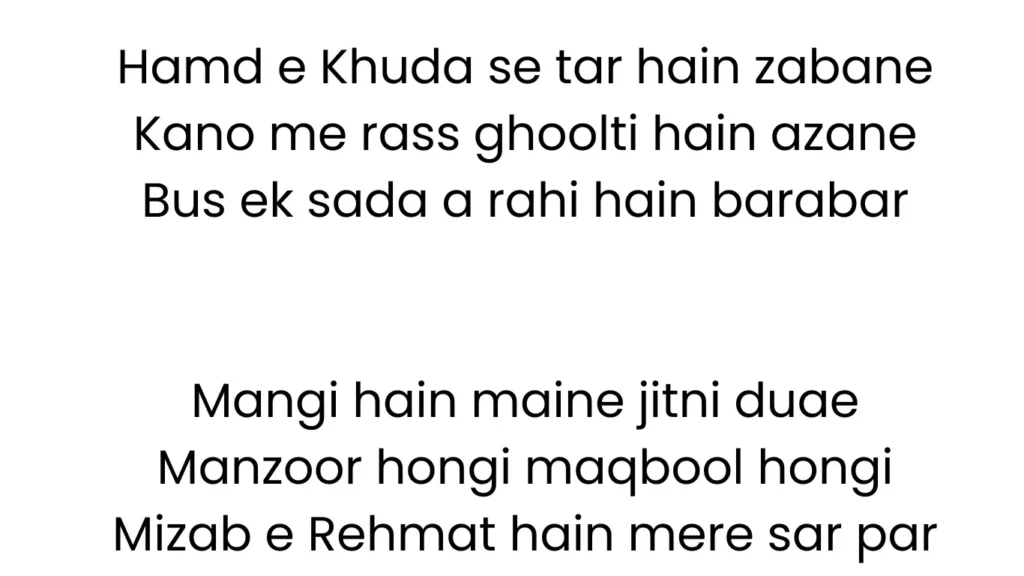
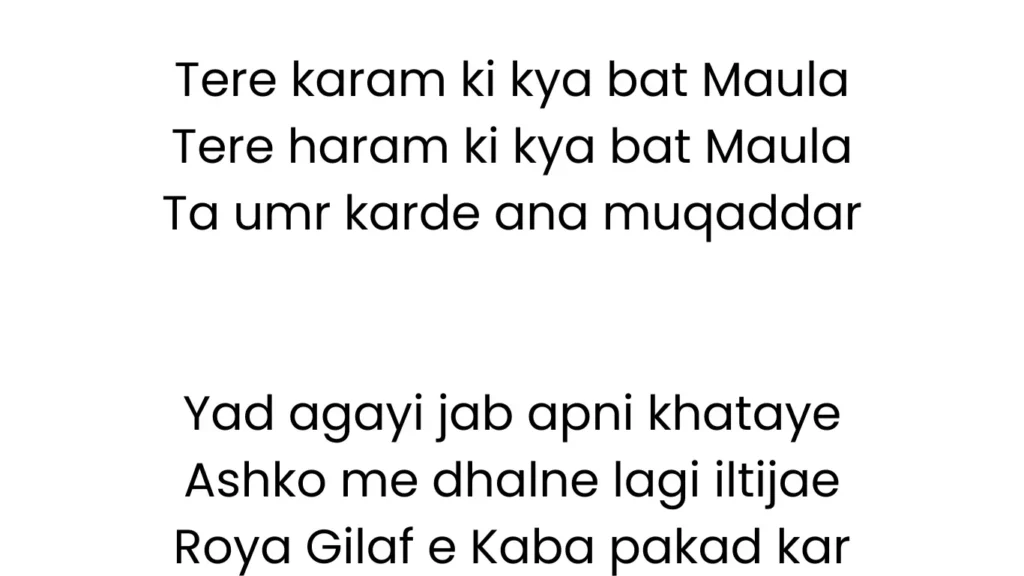
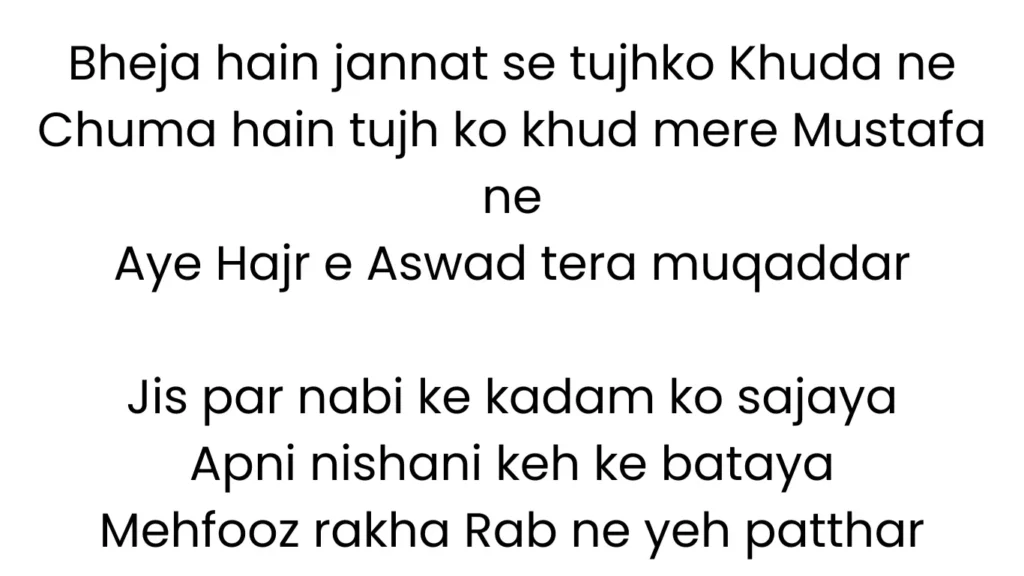
FAQs:
The phrase reflects the spiritual splendor and majesty of the Holy Kaaba, emphasizing its impact on a believer’s heart and soul.
The Hajr-e-Aswad is described as a celestial relic sent from Paradise and kissed by the Prophet Muhammad ﷺ, symbolizing a divine connection for Muslims.
The lyrics teach humility, gratitude, repentance, and the importance of unity and reverence in worship.
As we conclude our exploration of the soul-stirring Naat “kabe ki ronak kabe ka manzar lyrics,” we are left with a profound sense of awe and reverence for the sacred Kaaba. This poetic masterpiece encapsulates the deep-rooted love and devotion that Muslims have for the House of Allah. By immersing ourselves in its verses, we can strengthen our spiritual connection and experience the divine beauty that lies within. Let us continue to seek inspiration from such timeless works of Islamic poetry and strive to live our lives in accordance with the teachings of Islam.
